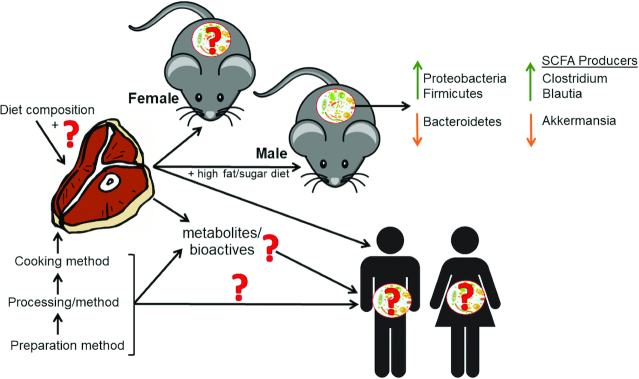FIGURE 2.
Extensive gaps exist in the literature regarding beef, its related bioactive compounds, and effects on gut microbiota. Various preparations, processing and cooking methods, and temperatures are utilized in the examined literature, which likely impact the bioactivity of beef. Research subjects varied in age and models used from rodents to human subjects. The effects of beef on the male mice and rats were mostly consistent, indicating increased Proteobacteria and Firmicutes and decreased Bacteroidetes. Findings regarding effects on SCFA-producing bacterial genera were discrepant, with increases in Clostridium and Blautia and decreases in Akkermansia. Short-term (1–4-wk) beef intakes had little to no effect on microbial profiles in humans. Most studies with adverse findings (animal and human studies) examined the impact of red meat or excessive intakes of red meat in the context of a diet high in fat or sugar.

